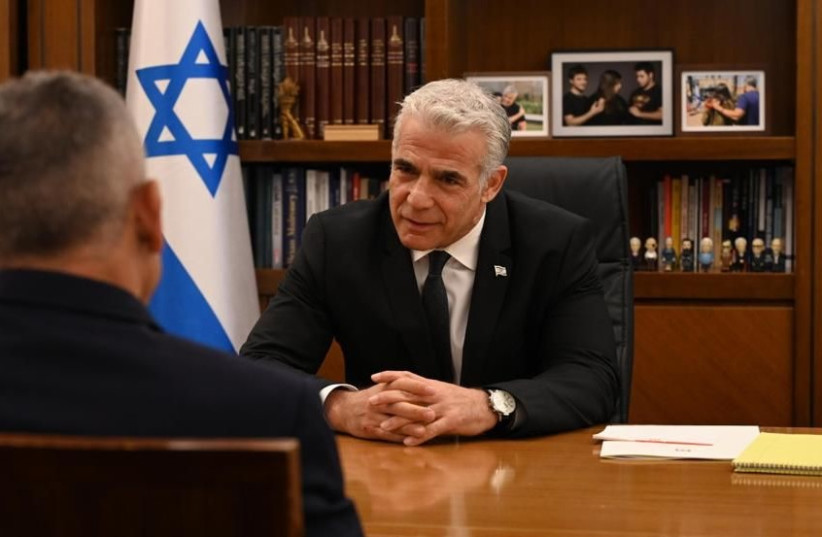There are some public servants in Israel who don’t speak, even in their sleep. This at least is the testimony of the wife of Ze’ev Snir, a retired Israel Air Force brigadier general and until recently the director-general of the Israel Atomic Energy Commission, one of the most sensitive security and diplomatic arms of the Israeli government. As with most of the senior appointments in the last decade, Snir was appointed to the role by current Prime Minister Benjamin Netanyahu in 2015.
After 49 years of service to the country, Snir has decided to speak out. Now, he is of course not the first, and indeed there is a stream of ex-Netanyahu appointees who have made clear their deep concerns over the content and form of the judicial reform being pursued by the current government, including ex-attorney generals, ex-IDF chiefs of staff, heads of the Shin Bet and Mossad.
But in the open letter to the prime minister, together with the in-depth interview he gave to Nadav Eyal in Yediot Aharonot earlier this month, Snir laid out in stark terms how the changes afoot could affect our most strategic defenses against our direst enemies.
Who is Snir?
One of the sub-texts of the current political crisis in Israel is the apparent struggle between, on one side, the Ashkenazi privileged elite, hanging on to its final bastion of power, namely the Supreme Court, and on the other, those who have been the targets of the courts for decades, principally Mizrahim, settlers, haredim and those in the periphery. This is classic identity politics, and Snir takes this very personally, as he knows that by speaking out he will immediately be categorized as leftist, privileged elite, and likely told by some Israeli ministers to go to hell.
However, in the letter he makes a point of letting us know his background – Snir’s parents were Holocaust survivors who made aliyah in 1950 from Romania penniless. They lived alongside other immigrants from Morocco and Iraq in tented cities. His parents asked for nothing and received nothing, but worked all the hours of the day to make sure that Ze’ev and his brother received an education.

Snir is absolutely part of an elite, but one that is built on the sweat of their parents who instilled in him the deepest possible patriotism to Israel and its people. Not surprisingly, Snir’s son is also a senior officer in the IAF.
The US is our strategic partner
It is hard to underestimate the importance that Snir places on the diplomatic and security relations we have with the US. “The military capabilities of the State of Israel, its security capabilities are unequivocally dependent on the Americans. In two ways,” says Snir. “First due to the supply of military equipment, the supply of technologies and access to the American market, and secondly due to their political and diplomatic defense.”
“The military capabilities of the State of Israel, its security capabilities are unequivocally dependent on the Americans."
Ze'ev Snir
As the person responsible for Israel’s nuclear diplomacy (reporting only to the prime minister), he makes crystal clear that without the American diplomatic and security shield, our strategic position will be degraded, to the point of it becoming an existential issue. In the interview, he repeats time and again how he sees a direct connection between our status as a strong democracy with independent governmental and legal institutions and the vital strategic relations we enjoy with the US.
The Iranian threat vs Netanyahu’s real priorities
In the letter he points out that: “The Iranians are pushing forward their nuclear program, and we are busy with the ‘Gifts Law’ (which will allow Netanyahu to avoid paying back funds he raised for his legal defense), the Iranians are busy buying Su-35 fighter planes from Russia, and we are busy with ‘The Deri Law II’ (to allow Deri serve as a minister in spite of his recent conviction), the Iranians are renewing their relations with Saudi Arabia and we are busy with the ‘Suspension Law’ (to block any attempts to suspend the Prime Minister from his duties for any legal reason).”
Snir is clear that as prime minister, Netanyahu has the ultimate responsibility for the current national turmoil. He holds him responsible for having ignored the very priorities that he himself set out at the first cabinet meeting of the new government, namely: “Iran, internal security, cost of living and widening the circle of peace.” The legal reforms were not even mentioned.
At the conclusion of the interview, Snir repeats what he wrote to Netanyahu – “I’m not applying for a foreign passport, and under no circumstances am I leaving the country. I was born here and I’m going to die here.”
Ze’ev Snir represents most of what is good about Israel. A product of immigrants who arrived as survivors of the Holocaust with nothing. A gifted engineer who has given his entire adulthood to the defense of Israel, using his talents in the most sensitive strategic arenas of our security and diplomacy.
Although he can quote Jabotinsky by heart and voted for Begin in 1977, he does not consider himself particularly political, but is worried, very worried about Netanyahu’s leadership and the edge of the chasm towards which he is taking Israel.
These are crucial weeks for Israel, and I hope that if nothing else, our prime minister reads and acts upon Snir’s heartfelt cry.
The writer is founding partner of Goldrock Capital and founder of The Institute for Jewish and Zionist Research. He was a founding chair of the Coalition for Haredi Employment and is a former chair of Gesher and World Bnei Akiva.
